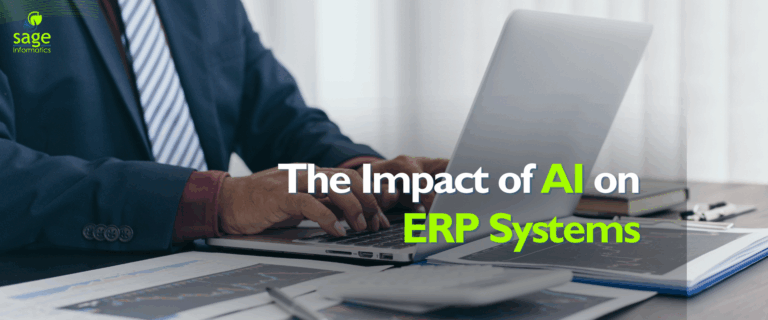It is a long established fact that a reader will be distracted by the readable content of a page when looking at its layout.

Working Hours
- Saturday 9:00 - 12:00 pm
- Sunday closed
It is a long established fact that a reader will be distracted by the readable content of a page when looking at its layout.

Guest Writer
26 May 2025

Artificial intelligence (AI) is revolutionizing the way organizations operate, particularly in the context of Enterprise Resource Planning (ERP) systems. ERP systems are essential for integrating and managing various business processes, and the infusion of AI has unlocked a new realm of possibilities for organizations looking to enhance their operational efficiency.
AI is significantly transforming ERP systems by improving data analysis and forecasting. AI powered ERP systems can go through large amounts of data in real time, offering organizations important insights into their operations and market trends. This advanced data analysis facilitates better decision-making, enabling organizations to forecast demand, optimize inventory levels, and enhance overall operational efficiency.
AI is also contributing to personalized user experiences within ERP systems. ERP platforms can adapt to user behavior and preferences through machine learning algorithms, offering a more customized and intuitive interface. This improves user satisfaction and boosts productivity as employees can efficiently navigate and utilize the ERP system to fulfill their roles.
AI is crucial in predictive maintenance and resource optimization within ERP systems. By utilizing AI-driven predictive analytics, organizations can efficiently anticipate equipment failures, schedule maintenance, and optimize resource allocation. This proactive approach minimizes downtime, reduces maintenance costs, and ensures seamless operations across the organization.
Automation is a fundamental aspect of AI’s impact on ERP systems. ERP systems can automate routine and repetitive tasks through robotic process automation (RPA) and AI-driven workflow optimization, freeing employee time for strategic, value-adding activities. This enhances workflow and minimizes human errors, improving accuracy and consistency in business operations.
Augmented Decision-Making
Furthermore, AI is augmenting decision-making within ERP systems. By utilizing AI algorithms to analyze complex scenarios and extrapolate trends from historical data, organizations can make more informed decisions across departments such as finance, supply chain management, and human resources. This leads to better strategic planning and boosts the organization’s competitive edge.
Conclusion
In conclusion, integrating AI into ERP systems profoundly reshapes how organizations operate and manage their resources. By harnessing the power of AI for enhanced data analysis, personalized user experiences, predictive maintenance, task automation, and augmented decision-making, organizations are experiencing a new level of efficiency and agility in their operations. As AI advances, we can expect further transformations in ERP systems, driving continuous improvement and innovation in organizational management.
Signup Today
Stay informed and be the first one to know about our latest cutting-edge solutions.
Copyright © 2023 Sage Informatics (PTY) Ltd. All Rights Reserved.